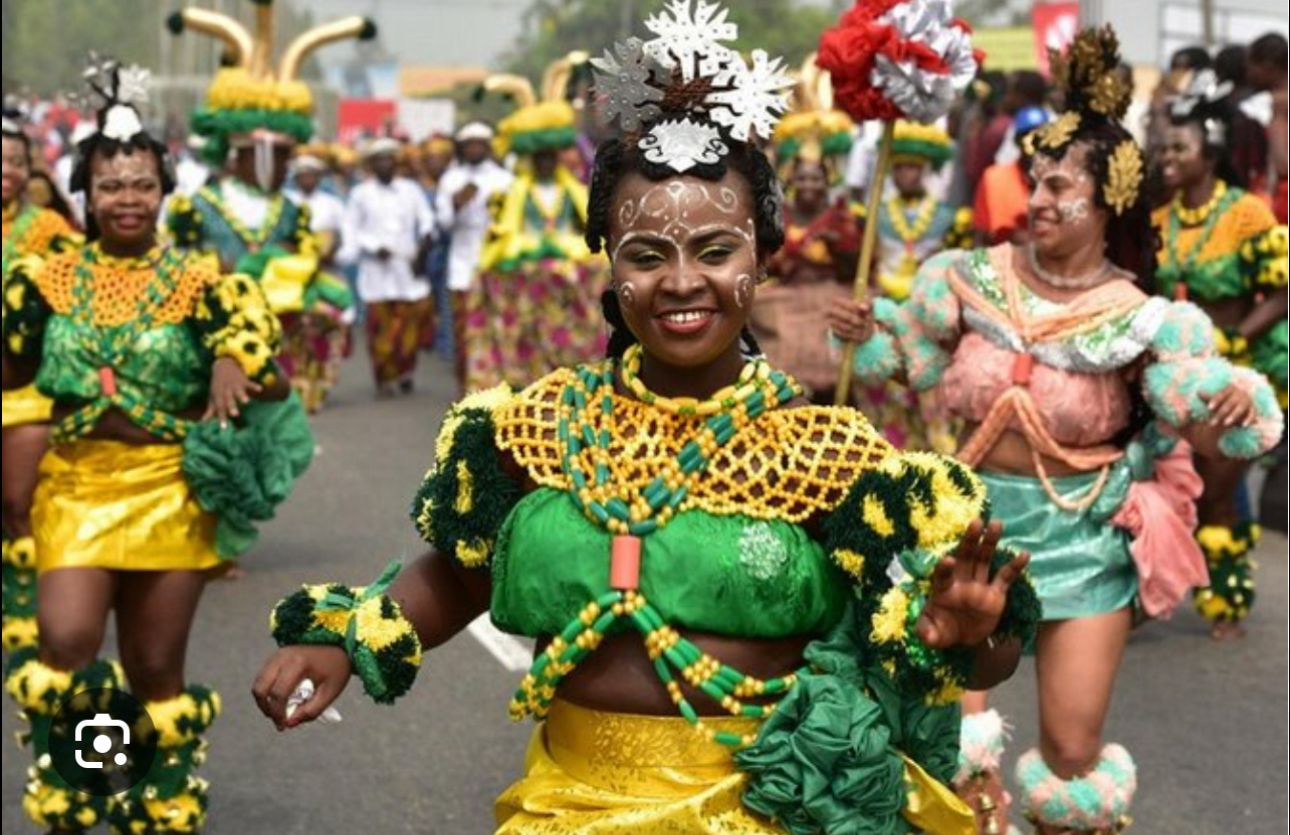
Calabar, Nigeria June 6, 2025 The city of Calabar marked a major milestone in cultural innovation with the successful launch of the first-ever mid-year edition of the Calabar Carnival, held on June 6, 2025. The event, which now joins the traditional December celebration, is part of a twice-a-year format proposed by the administration of Cross River State Governor Bassey Otu, aimed at expanding the state’s cultural tourism and economic potential.
This inaugural June edition carried the theme “One Voice, One Africa” and featured a rich blend of traditional displays, musical showcases, cultural exhibitions, and international delegations. With its expanded calendar, the Calabar Carnival is now positioning itself as a year-round driver of cultural preservation, youth engagement, and creative enterprise.
A Celebration of Unity Through Culture
The carnival grounds came alive with vibrant parades, indigenous performances, art installations, and fashion displays that highlighted Nigeria’s cultural diversity from the Efik and Igbo to the Hausa, Yoruba, Idoma, and Tiv communities. Cultural troupes and artists also arrived from countries such as Ghana, South Africa, Trinidad and Tobago, Jamaica, and Brazil, underscoring Calabar’s growing reputation as a hub for African and diasporan exchange.
“This mid-year edition is a bold and necessary move,” said a representative from the Cross River State Carnival Commission. “It ensures that African culture and heritage are not remembered once a year but remain active drivers of tourism, education, and identity.”
Though the President of Nigeria was not present, the event was formally opened by representatives of the Ministry of Arts, Culture, and Creative Economy, alongside diplomatic guests and cultural stakeholders.
Spotlight on African Women in Music lol
One of the standout segments of the 2025 edition was a curated tribute to African women in music—past and present—who have used their voices to preserve culture, challenge norms, and inspire change. The segment celebrated a mix of legendary and contemporary women, including:
- Onyeka Onwenu – Iconic singer, journalist, and cultural activist
- Angelique Kidjo – Beninese singer and global cultural ambassador
- Yemi Alade – Afropop star and advocate for African unity
- Tems – Grammy-winning artist blending soul and African rhythms
- Aisha – Known for her contributions to northern Nigerian music
- Theresa Onuorah – The powerful voice behind the iconic Igbo traditional song “Egedege”
- Brenda Fassie – South African pop legend celebrated posthumously
- Salawa Abeni, Nneka, Simi, Asa, Sho Madjozi, Irene Logan, Miriam Makeba, MzVee, and others—etc.
Their music was featured in curated performances, float parades, and soundscapes throughout the festival.
Among emerging voices, Miriam Ikwuegbu, professionally known as Cherish, was recognized for her debut album Origin. Tracks such as One Africa and Origin were featured in key carnival moments. While her presence was not central, organizers noted her among the promising new voices shaping contemporary African music.
“Cherish is a name we will be hearing for years to come,” said one of the cultural music coordinators during the Women in Music Forum. “Her songwriting carries a sense of heritage, depth, and clarity that’s rare among new artists.”
Critics praised Origin for its strong lyrical content, cultural resonance, and production quality. Her music, they noted, not only reflects African consciousness but bridges traditional storytelling with a fresh contemporary style. Industry observers called her early work “a vital contribution to the cultural soundtrack of the new generation.”
“Recognizing these women is not just about stars and stages,” said Dr. Lami Okoh, a moderator at the Women in Music Forum. “These women carry our stories, languages, and ancestral wisdom in their art. Recognizing them is a cultural responsibility.”
Economic and Creative Growth
In addition to the musical and cultural showcases, the carnival generated income opportunities for thousands of local vendors, artists, and artisans. Craft fairs, culinary expos, and youth showcases contributed to the growing ecosystem of creative entrepreneurship in the region.
The twice-a-year model, now officially launched, is expected to boost tourism numbers, extend festival-related jobs, and increase global attention on Cross River State as a leading cultural destination in Africa.
Looking Forward
With strong reception from both participants and spectators, the June edition of the Calabar Carnival is set to become a permanent fixture on Nigeria’s cultural calendar. As the festival closed with unity dances and a torch procession symbolizing continuity, one sentiment echoed throughout the streets: African culture is not a performance, but a living force resilient, evolving, and proudly celebrated.
Follow our socials Whatsapp, Facebook, Instagram, Twitter, and Google News.


![Police foil bank robbery in Calabar 2 [FILES] gunmen. Photo: AA](https://www.afriupdate.com/wp-content/uploads/2022/04/gunmen-1-1062x598-1.jpg)



